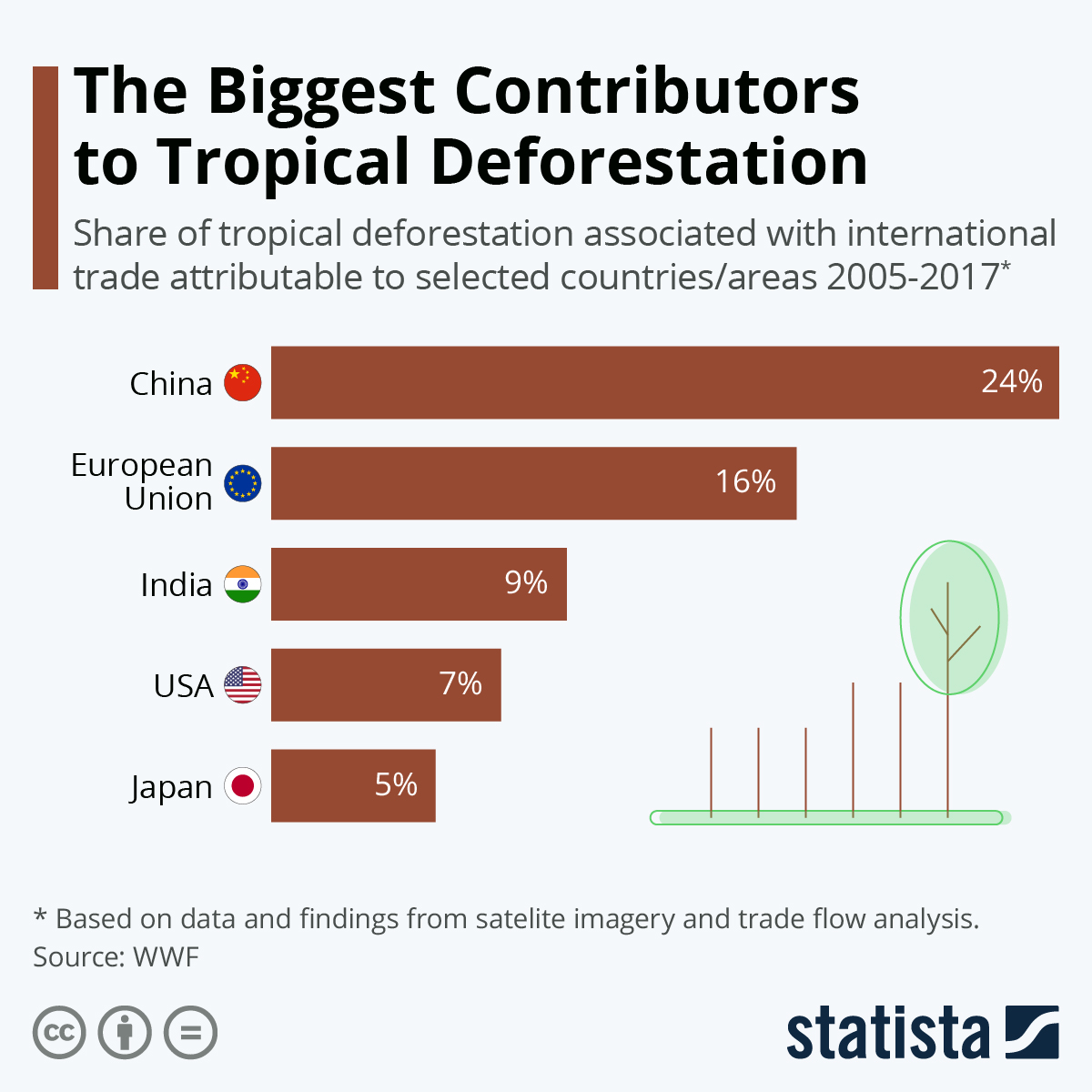The European Union accounted for 16 percent of global tropical deforestation from 2005 to 2017 when based on international trade flows. This is the finding of a report published today by the WWF. Its share is therefore more than double that of the United States (7 percent), as this infographic shows. The EU is surpassed only by China (24 percent). For the report, WWF used and evaluated data and findings from satellite image analyses and studies of trade flows.
According to the WWF, imports of soy, palm oil and beef destroyed the largest area of tropical forest during the study period, followed by wood products, cocoa and coffee. WWF refers to this as "imported deforestation," through which the EU would have indirectly caused 116 million tons of CO2 emissions in 2017. This is equivalent to more than a quarter of EU emissions from the agriculture sector in the same year. These indirect emissions are not included in official statistics on greenhouse gas emissions. Tropical forests play a crucial role in the global carbon cycle and therefore in the global climate. They store over 17% of the carbon stored in vegetation and soil worldwide. When forests are destroyed, carbon dioxide (CO2) is released into the atmosphere, contributing to climate change.
Tropical rainforests are found in South and Central America, Africa, Southeast Asia, and Oceania. The three largest rainforest regions on Earth are the Amazon Basin in South America, the Congo Basin in Central Africa, and the rainforests of northeastern Australia and New Guinea. 78 percent of the world's tropical forests are located in these three regions. All tropical rainforests are characterized by very high levels of species richness. Humans benefit directly from the biodiversity of rainforests - although only about one percent of all rainforest plants have been tested for their medicinal uses, 25 percent of the ingredients in our medicines originate from rainforest plants.





















